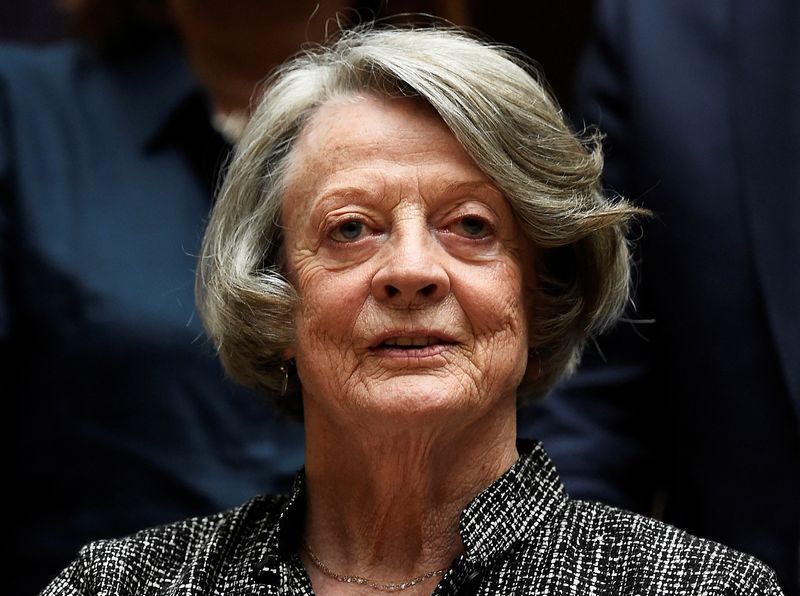Maggie Smith, mistress of waspishness on stage and screen
2024.09.27 11:27
LONDON (Reuters) – Dame Maggie Smith, who died on Friday aged 89, was a perfectionist who turned anxiety into an art form and was hailed as one of the great actors of stage and screen.
One of the few actors to win the treble of an Oscar (twice), Emmy (four times), and Tony, Smith moved effortlessly between performing Shakespeare and Oscar Wilde on stage to the “Harry Potter” movie franchise and the hit television series “Downton Abbey”.
But soul-searching about her art was anathema to the British actor, who jealously guarded her privacy and spurned the trappings of stardom.
“I wish I could just go into Harrods and order a personality,” she once said. ”It would make life so much easier.”
Perhaps her concern about her perceived lack of personality was what spurred her to take on so many others.
Her first Academy Award nomination was for her turn playing Desdemona opposite Laurence Olivier’s “Othello” in 1965, before she won her first Oscar for her role as an Edinburgh schoolmistress in 1969’s “The Prime of Miss Jean Brodie”.
Her second was for her supporting role in the 1978 comedy “California Suite”, where she layed alongside Michael Caine.
Other critically acclaimed roles included Lady Bracknell in Wilde’s ”The Importance of Being Earnest” on the West End stage, a 92-year-old bitterly fighting senility in Edward Albee’s play “Three Tall Women”, and her part in the 2001 black comedy movie “Gosford Park”.
STAR OF ‘HARRY POTTER’ AND ‘DOWNTON ABBEY’
In the 21st century, she was best-known as Professor McGonagall in all seven “Harry Potter” movies, and the Dowager Countess in the hit TV series and movie spin-offs of “Downton Abbey”, a role that seemed tailor-made for an actress known for purse-lipped asides and malicious cracks.
Margaret Natalie Smith was born on Dec. 28, 1934, in Essex, northeast of London. She moved to Oxford as a small child when her father, a pathologist, took a role at the university, and she began acting in the local theatre at 17.
Her big break came in 1956 with “New Faces” on Broadway. Her 1958 part in the British crime movie “Nowhere to Go” earned her a BAFTA nomination.
The following years were to see a welter of acclaimed roles in movies (including “Travels with my Aunt”, “A Room with a View” and “The Secret Garden”), on stage (“Lettice and Lovage”, “Virginia”) and on television (“David Copperfield”, “My House in Umbria”).
Critic Irving Wardle hailed a mouth that contracted from a wide, inviting smile to the “sucked-in venom of a stoat at bay” – something she put to good use in “Downton Abbey”
For many viewers, her waspish turn in the smash-hit historical series that ran on television from 2010 to 2015 was the best reason to watch it, and it earned her multiple awards – although it did little for her desire for a private life.
“I led a perfectly normal life until ‘Downton Abbey’. I’m not kidding. I’d go to theatres, I’d go to galleries, things like that, on my own. And now I can’t and that’s awful,” she said at the BFI Radio Times festival in 2017.
Smith was known for being demanding on herself and others. Theatre director Peter Hall, who worked closely with her for many years, said: “She nags herself into perfection.”
She had a tempestuous eight-year marriage to actor Robert Stephens, which ended while they were playing newly entangled divorcees in Noel Coward’s ”Private Lives”. They had two sons – actors Toby Stephens and Chris Larkin.

Smith then married her teenage sweetheart, writer Beverley Cross, a rock of imperturbability for her until his death in 1998.
In 1990, Smith was knighted by Queen Elizabeth and became a Dame.








